 W
WThe Front of the Greek Anticapitalist Left is a coalition of radical left political organisations in Greece. The Greek word ανταρσία antarsia means "mutiny". ANTARSYA describes itself as "Front of the anticapitalist, revolutionary, communist left and radical ecology".
 W
WThe Anti-Fascist People's Freedom League (AFPFL) was the dominant political alliance in Burma from 1945 to 1958 consisting of political parties and mass and class organizations.
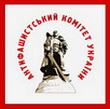 W
WThe Antifascist Committee of Ukraine is an antifascist and Pro-Russian organization operating in Ukraine.
 W
WGroupe Art et Liberté was an Egyptian artistic and political movement active from 1938 to 1948, about the time of the Second World War. Among the founders was the Surrealist poet Georges Henein; the group was based mostly but not exclusively on Surrealism.
 W
WThe Fatherland Front began as a Bulgarian Bolshevik political resistance movement in 1942 during World War II. The Zveno movement, the communist Bulgarian Workers Party, a wing of the Bulgarian Agrarian National Union and the Bulgarian Social Democratic Workers Party all became part of the OF. The constituent groups of the OF had widely contrasting ideologies and had united only in the face of the pro-German militarist dictatorship in Bulgaria. At the beginning, the members of the OF worked together, without a single dominating group. Professional associations and unions could be members of the front and maintain their organisational independence. However, the Bulgarian Communist Party soon began to dominate. In 1944, after the Soviet Union had declared war on Bulgaria, the OF carried out a coup d'état and declared war on Germany and the other Axis powers. The OF government, headed by Kimon Georgiev of Zveno, immediately signed a ceasefire treaty with the Soviet Union.
 W
WThe Communist Party is a Titoist political party in Serbia.
 W
WThe Communist Party of the Philippines is a far-left revolutionary organization and communist party in the Philippines, formed by Jose Maria Sison on 26 December 1968. It is designated as a terrorist group by the United States Department of State through Executive Order No. 13224 together with Sison and the New People's Army (NPA) in 2002. The European Union, through Council Decision (CSFP) 2019/1341, renewed the terrorist designation of the CPP-NPA in 2019, though the European Union's second highest court ruled in September 2009 to delist Sison as a "person supporting terrorism" and reversed a decision by member governments to freeze assets. According to the US' Central Intelligence Agency (CIA) World Factbook, the CPP and its armed wing, the NPA, aims to destabilize the Philippines' economy and overthrow the national government.
 W
WThe German African Party was a small Anti-fascism political party which existed in South West Africa from the 1930s through the 1950s.
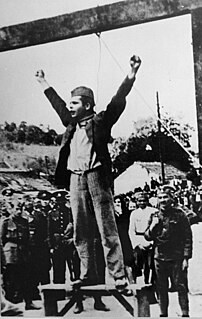 W
WThe British Independent Labour Party sent a small contingent to fight in the Spanish Civil War. The contingent fought alongside the Workers' Party of Marxist Unification (POUM) and included George Orwell, who subsequently wrote about his experiences in his personal account Homage to Catalonia.
 W
WThe Independent Democratic Serb Party is a social-democratic political party in Croatia representing the interests of the Croatian Serbs. It holds, progressive, pro-European stances and is generally considered a centre-left party.
 W
WThe International Agrarian Bureau, commonly known as the Green International, was founded in 1921 by the agrarian parties of Bulgaria, Czechoslovakia, Poland and Yugoslavia. The creation of a continental association of peasants was championed by Aleksandar Stamboliyski of the Bulgarian Agrarian National Union, but originated with earlier attempts by Georg Heim. Following Stamboliyski's downfall in 1923, the IAB came to be dominated by the Republican Party of Farmers and Peasants in Czechoslovakia, whose member Karel Mečíř served as its first leader. Mečíř was able to extend the IAB beyond its core in Slavic Europe, obtaining support from the National Peasants' Party in Greater Romania; as an ideologue, Milan Hodža introduced the Green International to European federalism.
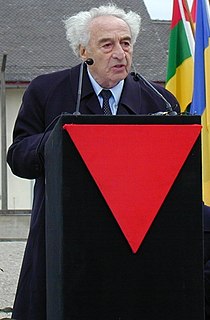 W
WInternational concentration camp committees are organizations composed of former inmates of the various Nazi concentration camps, formed at various times, primarily after the Second World War. Although most survivors have since died and those who are still alive are generally octogenarians, the committees are still active.
 W
WThe International Federation of Resistance Fighters – Association of Anti-Fascists also known by its French initials FIR is an organization of veterans of the anti-Axis resistance fighters, partisans, members of the anti-Hitler coalition. During the Cold War, the work of the FIR was closely connected with issues of peace, disarmament, understanding and cooperation of countries of different political systems. The FIR gave the former resistance fighters a voice against the policy of military confrontation and the real threat of war. Member organizations in West and East took numerous initiatives to end the policy of confrontation.
 W
WThe Jewish Democratic Committee or Democratic Jewish Committee was a left-wing political party which sought to represent Jewish community interests in Romania. Opposed to the orientation of most Romanian Jews, who supported right-wing Zionism as embodied by the Jewish Party (PER), the CDE was in practice a front for the Romanian Communist Party (PCR); its chairmen M. H. Maxy, Bercu Feldman, and Barbu Lăzăreanu were card-carrying communists. Initially, its anti-Zionism was limited by a recruitment drive among Labour Zionists, which allowed the party to absorb the local variant of Poale Zion. Additionally, the CED was directed against the Union of Romanian Jews (UER), a more traditional vehicle of assimilationism. It annexed an UER dissidence under Moise Zelțer-Sărățeanu, while also taking over chapters of Ihud and accepting in Jewish affiliates of the Romanian Social Democratic Party.
 W
WThe Jewish Party, in full Jewish Party of Romania or Jewish National Party, was a right-wing political party in Romania, representing Jewish community interests. It originally followed an undercurrent of Zionism, promoting communitarianism as a prerequisite of resettlement in Palestine, and later progressed toward Religious Zionism and Revisionism. Founded by Tivadar Fischer, József Fischer, and Adolphe Stern, it had particularly strong sections in Transylvania and Bessarabia. In the Old Kingdom, where it registered least support, it was mainly represented by A. L. Zissu and Renașterea Noastră newspaper.
 W
WLviv Anti-Fascist Congress of Cultural Workers was an event that brought together the progressive intellectuals of Poland, Western Ukraine, and Western Belarus. It took place on May 16-17, 1936 in Lviv, being organized by the Communist Party of Poland along with the Communist Party of Western Ukraine in order to create the united front against Fascism.
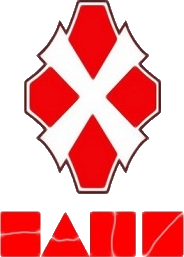 W
WNashi was a political youth movement in Russia, which declared itself to be a democratic, anti-fascist, anti-"oligarchic-capitalist" movement. Senior figures in the Russian Presidential administration encouraged the formation of the group, which Moises Naim labelled a government organized non-governmental organization (GONGO). By late 2007, it had grown in size to some 120,000 members aged between 17 and 25. On April 6, 2012, the Nashi leader announced that the current form of the movement would dissolve in the near future, possibly to be replaced by a different organisation. He stated that Nashi had been "compromised" during the 2012 Russian presidential election.
 W
WThe National Peasants' Party was an agrarian political party in the Kingdom of Romania. It was formed in 1926 through the fusion of the Romanian National Party (PNR), a conservative-regionalist group centered on Transylvania, and the Peasants' Party (PȚ), which had coalesced the left-leaning agrarian movement in the Old Kingdom and Bessarabia. The definitive PNR–PȚ merger came after a decade-long rapprochement, producing a credible contender to the dominant National Liberal Party (PNL). National Peasantists agreed on the concept of a "peasant state", which defended smallholding against state capitalism or state socialism, proposing voluntary cooperative farming as the basis for economic policy. Peasants were seen as the first defense of Romanian nationalism and of the country's monarchic regime, sometimes within a system of social corporatism. Regionally, the party expressed sympathy for Balkan federalism and rallied with the International Agrarian Bureau; internally, it championed administrative decentralization and respect for minority rights, as well as, briefly, republicanism. It remained factionalized on mainly ideological grounds, leading to a series of defections.
 W
WThe National Popular Party was an antifascist political party in Romania, founded during World War II as the underground Union of Patriots. The latter had defined itself as a spontaneous movement of resistance to the dictatorial regime of Ion Antonescu, but was largely known as a front for the illegal Romanian Communist Party. Its founders—Dumitru Bagdasar, Gheorghe Vlădescu-Răcoasa, Simion Stoilow—were closely cooperating with PCdR men, but also with liberal opposition forces. Repressed by the authorities, the UP made a comeback after the pro-Allied August 23 Coup of 1944, when it endured as a small ally of the communists—mostly controlled directly by them, but sometimes rebellious.
 W
WNever again Germany! was the political motto of the “radical left” (RL), with which this nationwide alliance positioned itself from November 1989 against German reunification and its feared consequences, against German anti-Semitism, racism, nationalism and fascism.
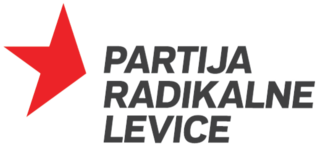 W
WThe Party of the Radical Left is a left-wing political party in Serbia, founded in September 2020 as the successor to Social Democratic Union. The party has no seats in the National Assembly, and is yet to contest the parliamentary election.
 W
WThe Patriotic People's Front was originally a Hungarian political resistance movement during World War II which become later an alliance of political parties in the Hungarian People's Republic. In the latter role, it was dominated by the Communist Party–known as the Hungarian Working People's Party (MDP) from 1948 to 1956 and the Hungarian Socialist Workers' Party (MSzMP) from 1956 onward.
 W
WThe People's Resistance – Left Anti-imperialist Cooperation was a coalition of Marxist-Leninist and anti-revisionist left political organisations in Greece. Communist Party of Greece (Marxist–Leninist) and Marxist–Leninist Communist Party of Greece were members of this cooperation. People's Resistance was founded in 2013 and dissolved in 2020.
 W
WThe Republican Left was a Spanish republican party founded in 1934.
 W
WThe Revolutionary Association of the Women of Afghanistan (RAWA) is a women's organization based in Kabul, Afghanistan, that promotes women's rights and secular democracy. It was founded in 1977 by Meena Keshwar Kamal, an Afghan student activist who was assassinated in February 1987 for her political activities. The group, which supports non-violent strategies, had its initial office in Kabul, Afghanistan, but then moved to Pakistan in the early 1980s.
 W
WThe Shakai Taishūtō was a moderate leftist political party in early Shōwa period Empire of Japan.
 W
WSkinheads Against Racial Prejudice (SHARP) are anti-racist skinheads who oppose white power skinheads, neo-fascists and other political racists, particularly if they identify themselves as skinheads. SHARPs aim to reclaim the multicultural identity of the original skinheads, hijacked in their views by white power skinheads, who they sometimes deride as "boneheads".
 W
WThe Socialist Left Party is a Trotskyist political party in Austria. It is a section of International Socialist Alternative. The party originated in the 1980s, when the forerunner "Sozialistische Offensive Vorwärts" emerged from the far-left wing of the Socialist Youth of Austria. It later transformed itself during the protests against the participation of the FPÖ in the Austrian government in 2000 into the current SLP, forming itself as a party at a conference on January 30, 2000. In 2002, it ran in federal elections for the Nationalrat; however, it was unable to win a seat.
 W
WThe Vlad Țepeș League, later Conservative Party, was a political party in Romania, founded and presided upon by Grigore Filipescu. A "right-wing conservative" movement, it emerged around Filipescu's Epoca newspaper, and gave political expression to his journalistic quarrels. Primarily, the party supported the return of Prince Carol as King of Romania, rejecting the Romanian Regency regime. It achieved this goal in 1930, but failed to capitalize on the gains. LVȚ and PC monarchism was generally moderate and within the classical political spectrum, reclaiming the legacy of the old-regime Conservative Party; however, the League idealized efficient government by dictatorial means, and its fringes grouped ultra-nationalists and fascists.
 W
WWe Can! – Political Platform is a left-wing, green political party in Croatia formed by local green and leftist movements and initiatives in order act on national level for European Parliament and parliament elections.
 W
WThe White Panthers were an anti-racist political collective founded in November 1968 by Pun Plamondon, Leni Sinclair, and John Sinclair. It was started in response to an interview where Huey P. Newton, co-founder of the Black Panther Party, was asked what white people could do to support the Black Panthers. Newton replied that they could form a White Panther Party. The counterculture era group took the name and dedicated its energies to "cultural revolution". John Sinclair made every effort to ensure that the White Panthers were not mistaken for a white supremacist group, responding to such claims with "quite the contrary." The party worked with many ethnic minority rights groups in the Rainbow Coalition.
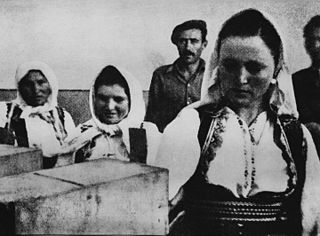 W
WThe Women's Antifascist Front of Macedonia was a World War II-era feminist movement in Macedonia and the predecessor to several present-day feminist organisations in North Macedonia. It was formed by volunteers along with other Women's Antifascist Fronts in Yugoslavia and was one of only four to also become an organised resistance movement. The predecessor of the organization are the commissions for work with women of the Macedonian Communist Party. In the spring of 1943, the first such committees were formed in Kavadarci and Negotino, and the organization was officially founded on December 14, 1944 in Skopje.
 W
WWorld Without Nazism (WWN), or Mir Bez Natsizma (MBN), is a Russian political organization with ties to Vladimir Putin's government, which claims to campaign against "neo-fascism." The group has also been described, by security agencies from the Baltic republics, as a Russian propaganda organization, and as a Kremlin-sponsored GONGO, which aims to advance Russian foreign policies against formerly Soviet-occupied countries and to promote "a Soviet-era approach to World War II". The organization was founded and is led by Boris Spiegel, a Russian oligarch with close ties to Putin. It was founded in Kyiv, Ukraine, on 22 June 2010, and is registered in Strasbourg, France.
 W
WZagreb is OURS! is a municipalist green left political party from Zagreb, Croatia. After winning first seats in 2017 elections for the Zagreb Assembly and profiling itself as the most vocal opposition to the mayor Milan Bandić and his local majority coalition, the platform took part in the 2019 EU elections, as well as the 2020 Croatian parliamentary election within green-left platform We can!.